Product Description
Ortho Molecular Products Orthomega Liquid
Orthomega Liquid is a molecularly distilled fish oil sourced from the cold, fresh waters off the Chilean coast. These waters provide the cleanest, most sustainable source of fish in the world. Orthomega Liquid includes 1.3 g of eicosapentaenoic acid (EPA), 850 mg of docosahexaenoic acid (DHA) per serving as triglycerides, the preferred form. The bioidentical, triglyceride form found in Orthomega Liquid allows for enhanced absorption and better assimilation in the body. The Orthomega Liquid formulation is a convenient method of achieving optimal omega-3 levels in the body. The natural mango-flavored liquid is the ideal alternative to encapsulated fish oil supplements.
Overview
Omega-3 fatty acids are essential cornerstones of human nutrition. They are deemed “essential” because we need them for proper health, but cannot produce them on our own. We must consume these fats through diet or supplementation. Omega-3 fatty acids are required for a number of body functions, from proper blood flow to brain development. These long-chain fatty acids are integral components of tissues and organ systems throughout the body, including the heart, skin, joints, eyes and immune system. In nature, omega-3 fatty acids occur as alpha linolenic acid (ALA), found mostly in plants, and as long-chain EPA, DHA and DPA, which primarily originate from cold-water fish. The body is able to slowly convert the shorter chain ALA to the more active long-chain, EPA, DHA and DPA. Conversion is limited in humans, making a higher dietary intake of EPA, DHA and DPA necessary. In addition, major changes in modern diet over the last century have led to a
decrease in the general consumption of omega-3 fatty acids. Since omega-3 fatty acids are known to benefit cardiovascular health, support healthy brain function and cognition, and maintain a healthy inflammatory response, achieving the proper balance of omega-3s has become an important health strategy that requires supplementation for most people.1 The American Heart Association recommends that those concerned about blood lipids take up to 4 g of omega-3 fatty acids per day.2
Fish Oil Delivery –
Triglycerides vs. Ethyl Esters
While the amount of EPA, DHA and DPA provided in a fish oil product is important for efficacy, the type of fish oil delivered is another significant factor in defining fish oil effectiveness. While ethyl esters allow for higher concentrations of EPA, DHA and DPA, their unusual structure is resistant to the digestive enzymes (lipases) that enable fat breakdown. In a study comparing EPA and DHA digestion in both forms, five common digestive lipase enzymes were shown to more readily digest fish oil in the triglyceride as compared to the ethyl ester substrate when there is a low enzyme to substrate ratio and therefore a low rate of hydrolysis.3 A recent study, conducted by fish oil research pioneer Dr. Jorn Dyerberg, demonstrated that omega-3s in the re-esterified triglyceride form are more efficiently digested and therefore 70% more absorbable than omega-3s in the ethyl ester form.4
Recommended Dose
Adolescents 14 – 17 years and Adults 18 years: 1 Teaspoon per day.
Adults 19 years and older: 1 Teaspoon 1 to 2 times per day.
Omega-3 Depletion
An accumulating body of research shows that the typical modern diet does not provide a sufficient amount of omega- 3s for optimal health. Additionally, insufficient conversion of ALA to the active EPA, DHA and DPA may reduce the amount available for use in organs and tissues.5
Cardiovascular
Omega-3 fatty acids have long been known to benefit cardiovascular health. The well-known GISSI- Prevenzione trial found that just 1 g a day of n-3 PUFAs (polyunsaturated fatty acids), the main component in fish oil, had a significant impact on cardiovascular health after three to four months of consumption.6 EPA and DHA have been shown to modulate levels of fat in the blood.7
Additional Benefits of Omega 3 Fatty Acids
In addition to their well-known cardiovascular benefits, EPA and DHA play a central role in eyes, nerves and brain development in children up to 12 years of age. In a recent British study, omega-3 blood levels were shown to be directly related to supporting cognition, and brain function among healthy children with below-average reading ability.7
References
- Connor WE. Importance of n-3 fatty acids in health
and disease. Am J Clin Nutr. 2000 Jan;71(1 Suppl):171S-5S. - http://www.heart.org/HEARTORG/GettingHealthy/ NutritionCenter/HealthyDietGoals/Fish-and-Omega-3- Fatty-Acids_UCM_303248_Article.jsp
- Yang LY, Kuksis A, Myher JJ. Lipolysis of menhaden oil triacylglycerols and the corresponding fatty acid alkyl esters by pancreatic lipase in vitro: a reexamination.
J Lipid Res. 1990 Jan;31(1):137-47. - Dyerberg J, Madsen P, Møller JM, Aardestrup I, Schmidt EB. Bioavailability of marine n-3 fatty acid
formulations. Prostaglandins Leukot Essent Fatty Acids. 2010 Sep;83(3):137-41.) - http://umm.edu/health/medical/altmed/supplement/ omega3-fatty-acids
- Dietary supplementation with n-3 polyunsaturated
fatty acids and vitamin E after myocardial infarction: results of the GISSI-Prevenzione trial. Gruppo Italiano per lo Studio della Sopravvivenza nell’Infarto miocardico. [No authors listed] - Montgomery P, Burton JR, Sewell RP, Spreckelsen TF, Richardson AJ. Low Blood Long Chain Omega-3 Fatty Acids in UK Children Are Associated with Poor Cognitive Performance and Behavior: A Cross-Sectional Analysis from the DOLAB Study. PLoS One. 2013 Jun 24;8(6):e66697.
Medicinal Ingredients
Fish oil (Engraulidae, Whole)
2.6 g (1.3 g EPA, 850 mg DHA)
Non-Medicinal Ingredients
Flavour, Mixed tocopherol concentrate, Rosemary extract, Sunflower oil, Lecithin, Ascorbyl palmitate.

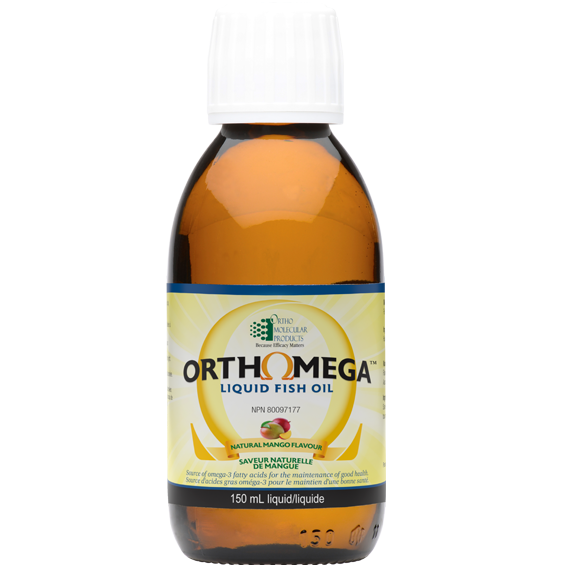
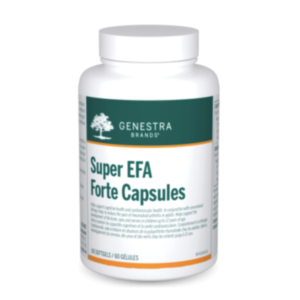
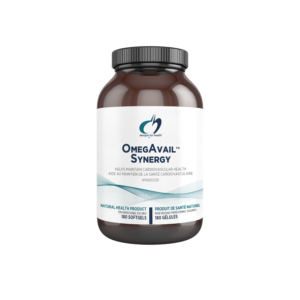
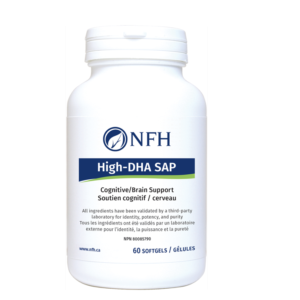
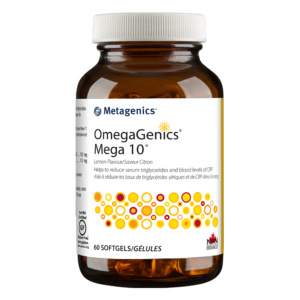
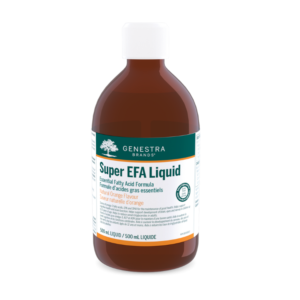
Reviews
There are no reviews yet.